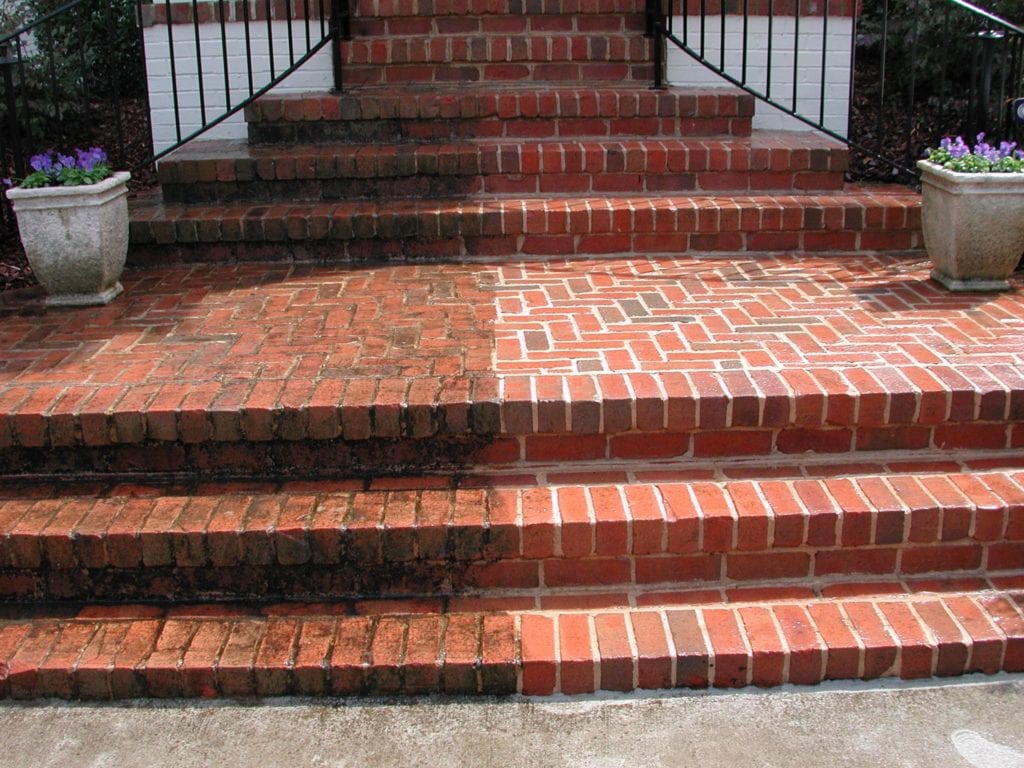If you’re in need of pressure washing, especially if your going to pay to have it done, you want it done right. But to do any job effectively you need the right tools. The equipment you buy at local box store might be cheap enough to own, and effective at basic jobs, those machines all have there limitations.
Here is an informative article about why our system, a hot water pressure washing, is much more effective at any task we take on.
Hot Water vs. Cold Water:
Why the difference in pressure washers?
All pressure washers fall into one of two different categories: hot water or cold water.
Because both hot and cold water pressure washers have models with the same (1) flow rate, (2) pressure and (3) capability of cleaning indoors or outdoors, it begs the question: why do you need a hot water pressure washer when everything else is the same?
The answer is as close as the kitchen sink.
You’ve just had a spaghetti supper and it’s time to wash the dishes. Fill one sink with cold water and the other with hot water. Even with a heavy dose of soap in the cold water sink, hot water will clean significantly better and faster. Why?
It’s a story as basic as the molecules that make up water. We learned in our early school years how everything is made of atoms that bond together to form molecules. These tiny molecules are in constant motion. As water becomes hotter the molecules move faster and faster eventually pushing out so far to convert the liquid water into a gas, or steam. Conversely, as water cools the molecules slow until they become ice. In other words, hot water is packed with energy that is released into the cleaning equation with a powerful punch. This energy also causes a reduction in the water’s surface tension so that it can now penetrate more easily and effectively the molecules of grease and grime.
Actually, there are three key elements–heat, agitation and soap—that successfully remove grease and grime. Here’s how each works:
• Heat, as described above, creates a high-speed molecular action that causes the cleaning agent to be more active and reduces water’s surface tension so it can effectively penetrate grime at the molecular level.
• Agitation is the impact that comes from the water volume and water pressure hitting the surface—similar to the action of hand scrubbing the dinner plate in your kitchen sink.
• Finally, soap (often referred to by pressure washer users as “detergent”) chemically breaks the bond between dirt and the surface, such as a floor or metal plate. It starts when the molecules of oil and grease attach themselves to dirt and keep them trapped or bound to the surface. Detergents use softening agents, technically referred to as “surfactants” (an abbreviation for “surface active reagents”) to emulsify the oil and grease. Emulsification is
the process in which two or more immiscible liquids, like oil and water, no longer repel each other but actually mix. Once the oil and water are able to mix forming an emulsion, the dirt–still clinging to the oil and grease–is carried away in the wash water.
So what does all of this have to do with a hot water pressure washer? Hot water washers bring together in perfect balance all three of these key elements—heat, agitation and soap–to deliver cleaning’s ideal knockout punch.
